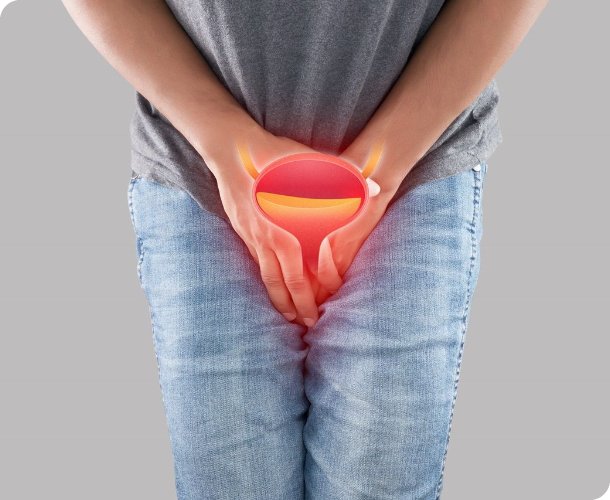What is it Prostatitis?
The prostate gland, a tiny, walnut-shaped gland in males that is situated directly below the bladder, can become inflamed, which is a condition known as prostatitis. In addition to causing urinary symptoms, this inflammation can also cause pain and discomfort in the pelvic region. Acute bacterial prostatitis, chronic bacterial prostatitis, chronic pelvic pain syndrome (CPPS), and silent inflammatory prostatitis are some of the several types of prostatitis.
Causes
Depending on the type, prostatitis can have a variety of causes. Typically, a bacterial infection is what causes acute bacterial prostatitis. A recurrent infection brought on by bacteria is known as chronic bacterial prostatitis. Numerous things, such as nerve or muscle damage, pelvic floor muscle dysfunction, and psychological stress, can lead to chronic pelvic pain syndrome (CPPS). An inflammation of the prostate known as asymptomatic inflammatory prostatitis occurs without any symptoms.
Diagnosis
A physical examination, an analysis of the symptoms, and laboratory testing are required for the diagnosis of prostatitis. To find any infections, tests can include a urinalysis, a semen analysis, or a culture of the urine or semen. Rectal examinations and prostate biopsies may occasionally be carried out to assist in the diagnosis of the disorder.

Treatment
Depending on the nature and severity of the problem, prostatitis may require different treatments. Both acute and chronic bacterial prostatitis may be treated with antibiotics to assist with any infections. Treatment options for chronic pelvic pain syndrome (CPPS) include medication, physical therapy, and dietary modifications. For people with chronic pain, surgery or nerve stimulation may occasionally be advised. Although asymptomatic inflammatory prostatitis usually does not need treatment, routine monitoring may be advised to make sure the illness does not worsen.
Conclusion
Finally, it should be noted that prostatitis is a prevalent condition that can lead to pelvic pain and discomfort. Depending on the nature and severity of the problem, prostatitis may be treated with antibiotics, physical therapy, dietary changes, or other types of therapy. It's crucial to consult a doctor if you have prostatitis symptoms in order to have a proper diagnosis and course of therapy.
Copyright © . Karthikeyan V S. All Rights Reserved.
Powered By: Cortex Media Marketing Pvt Ltd


